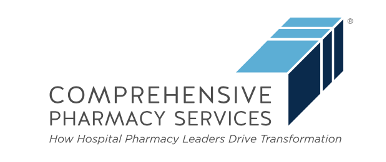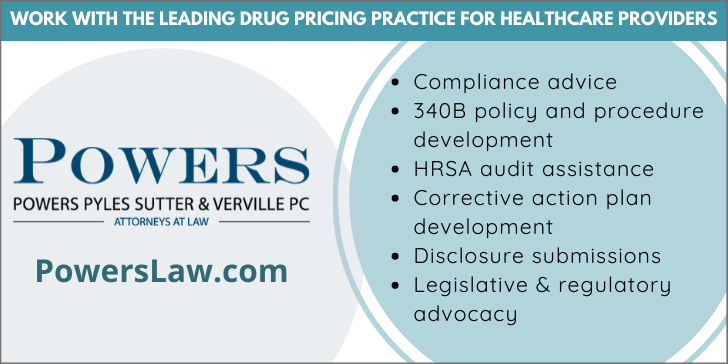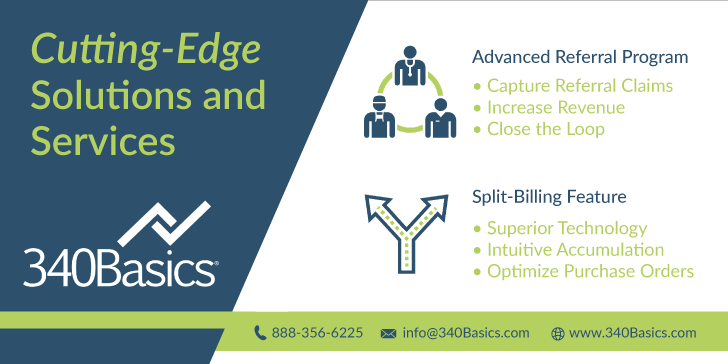
U.S. Sen. Lamar Alexander (R-Tenn.) and Rep. Greg Walden (R-Ore.) asked for, and got, input from 340B stakeholders about how 340B could be improved. The comments will help frame the battle over 340B’s future and where the debate will be headed in 2021. | Source: Shutterstock
GOP Committee Leaders Asked for and Got 340B Reform Ideas. What Happens Now?
Pharmaceutical manufacturers told two Republican congressional committee leaders late last week that the 340B program isn’t a safety net for vulnerable patients; it’s just a money maker for vested interests, they said, and Congress should fix it.
Health systems and hospitals told the leaders 340B works well. They say Congress should press the executive branch to take a harder line against drug manufacturers that evade 340B requirements.
Community health centers told the leaders that the biggest problem with 340B is for-profit pharmacy benefit managers, insurers, and pharmacies that bully centers into giving up 340B savings. Congress should stop this 340B “pick-pocketing.”
U.S. Senate Health, Education, Labor, and Pensions (HELP) Chair Lamar Alexander (R-Tenn.) and U.S. House Energy and Commerce (E&C) ranking Republican Greg Walden (Ore.) got those different perspectives among comments submitted in response to their call for ideas about how to improve 340B. Friday was the deadline for submissions.
What Alexander and Walden will do with the comments now that they have them is unknown. Both will retire when the 116th Congress ends Jan. 3. There will be little time left to pass legislation during the post-election lame duck session, although bills are expected. Staff for both lawmakers did not answer questions about their bosses’ plans. They also did not answer whether the public will get a chance to read all of the comments that were submitted. Nonetheless, these comments will help frame the debate over 340B’s future in 2021.
340B Report asked for and got the comments key stakeholders delivered to Alexander and Walden. Here is what the drug industry, health systems and hospitals, and community health centers had to say.
Pharmaceutical Research and Manufacturers of America
“It is no longer accurate to characterize the 340B program as a safety-net program primarily focused on vulnerable patient care,” Pharmaceutical Research and Manufacturers of America (PhRMA) said. “Increasingly, the 340B program has become a revenue stream for certain stakeholders decoupled from the medical and pharmaceutical access needs of vulnerable patients.”
“Any program realignment emerging from your efforts must advantage vulnerable patients and not serve as a revenue-maximizing enterprise for hospitals, contract pharmacies, or for-profit vendors,” PhRMA told Alexander and Walden.
While PhRMA said Congress should make all covered entities more accountable for how they use saving from 340B discounts to benefit vulnerable patients, it gave specifics only on what Congress could do to demand more from hospitals. It said U.S. Sen. Bill Cassidy’s (R-La.) HELP Act from 2018, and Reps. Larry Bucshon (R-Ind.) and Scott Peters’ (D-Calif.) 340B PAUSE Act introduced in late 2017, “offer a sound starting point” for fashioning 340B covered entity reporting requirements. Both bills mainly targeted 340B disproportionate share (DSH) hospitals. The bills would have stopped new DSH hospital, DSH child site, and DSH contract pharmacy enrollment for two years. They also would have required 340B DSH, children’s, and free-standing cancer hospitals to begin reporting data including patient insurance status, payer mix, 340B drug costs and revenues (including revenues from physician administered drugs), and amounts spent on charity care.
PhRMA said “there is broad consensus that the lack of specificity” in the current 340B patient definition “invites abuse”—an assertion covered entities probably would challenge. PhRMA said a “sound” definition would
-
clarify the relationship between the 340B provider seeing the patient (including the need for in-person visits to maintain the provider-patient relationship)
-
specify child site criteria for patient receipt of outpatient care at a covered entities’ facilities
-
delineate hospital eligibility standards for the 340B program as a result of a state government contract (defining criteria for patients receiving care within the scope of the contract).
PhRMA said Congress should revise hospital and hospital child site eligibility criteria “to ensure discounts are going to hospitals serving a truly indigent or vulnerable population.”
It said “unchecked” growth in 340B contract pharmacy arrangements boosts profits for hospitals, for-profit pharmacies, and other middlemen “without providing a clear benefit to needy patients,” and that the U.S. Health Resources and Services Administration (HRSA) 340B contract pharmacy guidance “cannot impose any binding requirements on the public and lacks the force and effect of law.”
Finally, PhRMA told the lawmakers that “current mechanisms to identify and prevent duplicate discounts and diversion are ineffective.” It said it “look[s] forward to working with stakeholders on identifying solutions to prevent duplicate discounts, strengthen the 340B program, and reduce market distortions exacerbated by manufacturer rebates paid on commercial or Part D drugs that also received 340B discounts.”
Biotechnology Innovation Organization (BIO), the other major drug industry trade group, did not respond to a request for its comments.
American Hospital Association
The American Hospital Association (AHA) said it opposes “any efforts that would diminish the scope of the [340B] program or significantly reduce its benefits,” and urged Congress to “focus its energy on protecting the 340B program by providing strong oversight of drug manufacturers’ constant efforts to undermine the program.”
AHA said major drug manufacturers’ decisions to limit distribution of 340B drugs to contract pharmacies violate the 340B statute and the 340B pharmaceutical pricing agreements the companies signed. The U.S. Health and Human Services Department (HHS) should tell the companies to stop charging hospitals more than the 340B ceiling price for drugs and make the companies issue refunds for overcharges, it said, and the HHS Inspector General should assess civil monetary penalties.
Manufacturers’ attempts to provide 340B pricing as rebates instead of as discounts “is in direct violation of HRSA’s own guidance that established the 340B program as an up-front discount program” and “directly subverts Congress’ intent,” AHA said.
Congress should “use its oversight authority to investigate these harmful actions” and “encourage the administration to exercise its existing authority to address these abuses,” the group said.
340B Health
Hospital group 340B Health said the 340B program was working as intended. Congress “should ensure that HHS is enforcing the 340B statute and taking action against non-compliant manufacturers,” it said.
“HHS should notify manufacturers that they must offer 340B pricing for drugs ordered by covered entities to be dispensed through contract pharmacies and should impose civil monetary penalties against manufacturers that deny 340B pricing in such instances,” 340B Health said. HHS also “should notify manufacturers that they may not adopt a rebate model to offer 340B pricing without HHS first issuing guidance through the notice-and-comment process allowing a rebate model and directing how it would work,” it said.
“In response to both manufacturer denials of 340B pricing and their consideration of a 340B rebate model, covered entities have called on HHS to take action to enforce the 340B statute and stop manufacturers from limiting access to 340B discounts,” the group wrote. “HHS has not taken enforcement actions. As such, Congress should use its oversight powers to ensure HHS is enforcing the 340B statute and holding manufacturers accountable.”
Association of American Medical Colleges
The Association of American Medical College (AAMC) said it “believe[s] the program works well.” It said Congress should “use its oversight function to ensure that” HHS “make[s] sure that pharmaceutical manufacturers comply with current law and do not undermine the program.” AAMC said it is “deeply troubled” by manufacturers’ refusal “to offer 340B pricing on eligible drugs at community pharmacies,” and by manufacturers’ efforts “to change the 340B program from a discount program to a rebate.”
National Association of Community Health Centers
The National Association of Community Health Centers (NACHC) said “the most fundamental challenge” centers face with 340B is “being forced to turn over their 340B savings to bigger, for-profit groups.”
“While several state legislatures have sought to crack down on these practices, the only guaranteed solution is to add an ‘anti-discrimination’ clause to the 340B statute,” NACHC said. “This clause would prohibit PBMs, insurers, etc., from varying their contract terms based on whether or not a drug was covered under 340B.” NACHC also called for a U.S. Government Accountability Office (GAO) study on 340B pick-pocketing.
NACHC also told Alexander and Walden:
-
Any changes to the 340B patient definition “must not be one-size-fits-all.” Each type of covered entity should have its own patient definition “that appropriately reflects its statutory goals, organizational structure, program requirements, and Federal oversight.”
-
Health centers “are willing to consider a standardized national system to avoid duplicate discounts under Medicaid—but it is not their responsibility to help manufacturers avoid paying rebates that they voluntarily offered to PBMS as marketing incentives.”
-
The 340B program should “not be diminished or marginalized by assuming its sole purpose to be passing on the 340B discount to individual patients.”
-
Congress should amend the 340B statute “to explicitly state that [federally qualified health centers] FQHCs may dispense 340B-priced drugs via contract pharmacies…. Any potential restrictions on contract pharmacies should be done with a scalpel rather than a sledgehammer, recognizing the numerous factors that influence contract pharmacy decisions.”
-
Any new 340B reporting and programmatic requirements “should be aligned with other Federal reporting and programmatic requirements on FQHCs.”
-
340B “must remain as an upfront discount program.”
SPONSORED BY

SPONSORED CONTENT
Driving 340B Program Integrity
The Importance of an Engaged 340B Oversight Committee and Use of Internal Monitoring Data
A key component of the 340B program is program compliance and integrity. Covered entities must agree to comply with all 340B statutes, policies, and guidance to maintain the integrity of its 340B program. In this webinar recording from Comprehensive Pharmacy Services (CPS), listen to Jason Mills, Senior Consultant, discuss how an engaged 340B oversite committee, along with the use of internal monitoring data, can help a 340B provider achieve this goal of program integrity through best practices and required elements.
-
Identify the key stakeholders of the 340B oversight committee and describe the expectations for each member and the committee
-
Examine the internal monitoring procedures that align with the HRSA’s required elements and best practices
-
Better understand how the oversite committee utilizes the internal monitoring data to drive program integrity
Click here to get the recording and learn more about how CPS can help you.

Calif. Health System Will Pay U.S. and State Governments for Overbilling Medicaid for 340B Drugs
A Southern California health system yesterday agreed to pay the federal and state governments $31.5 million to settle allegations that it overbilled Medicaid for 340B purchased drugs from December 2016 to October 2019.
The U.S. Justice Department (DOJ) announced the settlement with MemorialCare Health System on Nov. 2. MemorialCare has not admitted any wrongdoing. According to a DOJ news release, in October 2019 the health system voluntarily disclosed, after an internal audit, that for almost three years it charged the federal and state Medicaid programs higher usual and customary costs for 340B purchased drugs instead of lower actual acquisition costs.
“The overbilling allegedly resulted from Memorial Health billing for its usual costs following a federal court’s temporary stay of the implementation of the California law requiring 340B providers to bill Medi-Cal at actual acquisition cost rates,” DOJ said. “But once a court lifted the temporary ban, Memorial Health failed to implement actual acquisition cost pricing.” Medi-Cal is the state’s Medicaid program.
A 2009 state law required California 340B covered entities to carve-in Medi-Cal fee for service and bill for 340B purchased drugs at actual acquisition cost plus a dispensing fee. AIDS Healthcare Foundation and the state Department of Health Care Services fought in court over the law for almost a decade, mainly over how the state implemented the change. From mid 2013 through late 2016, the state was enjoined from enforcing the law. The state ultimately prevailed, and the U.S. Centers for Medicare & Medicaid Services approved a Medicaid state plan amendment finalizing the law’s implementation.
In a related development, in early 2019, California Gov. Gavin Newsom (D) signed an executive order transferring the Medi-Cal managed care pharmacy benefit to Medi-Cal fee for service, effective January 2021. Last week, a group of California health centers sued in federal court to stop Newsom (D) and the state health department from implementing the order.
In its announcement yesterday about the settlement agreement with MemorialCare, DOJ said the health system cooperated with the federal and state authorities’ investigation after it voluntarily disclosed its overbilling for 340B drugs.
“Hospitals and pharmacies that participate in the 340B Program are expected to provide low-priced drugs to vulnerable patients without overcharging the federal or state government,” said United States Attorney Nick Hanna. “While we commend Memorial Health for making a voluntary disclosure of its overbilling, we expect health care entities that participate in the 340B Program to do so fairly, honestly and in full compliance with the law.”
“Today’s settlement was the result of Memorial Health coming forward, doing the right thing, and alerting the authorities of their error,” said California Attorney General Xavier Becerra. “The money from the settlement will go back where it belongs: to California’s residents, particularly low-income families and children who rely on Medi-Cal for their healthcare coverage.”
Memorial Health Services spokesperson Cathy Capaldi said, “We take matters like this very seriously. We discovered the error and promptly reported it to the appropriate government agencies. We’ve cooperated fully, and we accept the terms of the settlement. We have also taken steps designed to prevent this from happening in the future.”
SPONSORED BY

63 Groups, Including Progressive Heavyweights, Write to Azar About Pharma 340B Actions
Sixty-three organizations—including four big national labor unions, major social justice groups, and multiple HIV/AIDS and health care advocacy groups—late last week sent U.S. Health and Human Services (HHS) Secretary Alex Azar a letter asking him to stop drug manufacturers’ denials of 340B pricing for drugs dispensed by contract pharmacies. It was a notable show of progressive solidarity on a 340B issue.
Hospital group 340B Health coordinated the campaign to get groups to sign. Signers include political heavyweights American Federation of State, County & Municipal Employees, American Federation of Teachers, Communications Workers of America, and Service Employees International Union. Other influential signers include AIDS United, Catholic Charities USA, Human Rights Campaign, the National Association for the Advancement of Colored People, and the National Council of Negro Women.
“We are deeply concerned about some pharmaceutical manufacturers’ recent actions to limit access to discounted prices for certain prescription drugs purchased by safety-net hospitals, health centers, and clinics,” the groups said. These actions “will harm communities of color, low-income, and rural populations.”
“Please use your legal authority to stop unlawful actions that deny discounted drug pricing to hospitals and other covered entities before they cause irreparable damage to the safety net and compromise resources needed for patient care,” the groups asked Azar.
SPONSORED BY

AHA Asks Pedley to Stop Push for 340B Rebates
The American Hospital Association (AHA) late last week urged the head of the federal 340B drug pricing program “to intervene and stop” drug manufacturers and health care information technology company Kalderos from changing how “covered entities access discounted 340B pricing from an upfront discount to a back-end rebate.”
“This fundamental change threatens the integrity of the 340B program and the savings on which covered entities rely to provide care to millions of low-income Americans,” AHA said in an Oct. 30 letter to U.S. Health Resources and Services Administration (HRSA) Office of Pharmacy Affairs (OPA) Director Adm. Krista Pedley. AHA released the letter yesterday.
Kalderos announced its 340B Pay platform to let manufacturers deliver 340B ceiling prices as rebates in late August, and said some manufacturers would start using it on Sept. 8. That didn’t happen. Some think Kalderos has sought, but not received, a go-ahead from HRSA to launch 340B Pay. Kalderos has said only that it has communicated with HRSA during 340B Pay’s design and testing, and that HRSA “has not identified any enforcement issues raised by our model.” HRSA told 340B Report in late September it “is aware of the Kalderos model and is in the process of reviewing and determining next steps.”
Six U.S. House members—three Democrats and three Republicans—are asking House colleagues to sign a letter to Azar expressing their belief that, before manufacturers and third-party vendors can change 340B into a rebate model, HRSA first must go through a formal rulemaking process with notice and comment agreeing to any such change. The original deadline for signatures was Oct. 23. It was pushed back, first to Oct. 29, and then to Nov. 6.
Hospitals and Ryan White Clinics Pan Novartis’ 340B Policy Changes
Hospitals and HIV/AIDS clinics criticized drug manufacturer Novartis’ modifications last Friday to its policy on provision of 340B pricing on drugs dispensed to contract pharmacies.
In August, Novartis gave covered entities an Oct. 1 deadline to register with a vendor and begin biweekly uploads of contract pharmacy claims data to continue to be eligible to get 340B discounts at contract pharmacies. In late September, Novartis said it still expected entities to turn over the data but was reevaluating whether to end discounts for those that did not.
On Oct. 30, Novartis announced there would be no changes in 340B pricing for health centers, Ryan White clinics, and other 340B federal grantees. However, the manufacturer said it would only provide the discounts on drugs shipped to hospital contract pharmacies located within 40 miles of the hospital.
Novartis has dropped its demand that that covered entities upload contract pharmacy claims data but is still encouraging it.
As we first reported Friday afternoon, hospital group 340B Health said Novartis’s revised plan was still illegal, that drug companies cannot limit 340B discounts based on where patients get their prescriptions filled, and that the U.S. Health and Human Services Department (HHS) should “put a stop to this unlawful behavior.”
Ryan White Clinics for 340B Access (RWC-340B) said that, while grantees were pleased to be out of Novartis’ crosshairs, its changing the rules midstream “underscores why Congress and HHS should not abdicate their authority over the 340B program to manufacturers.”

